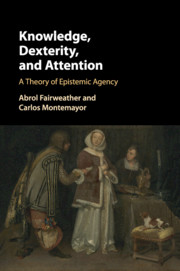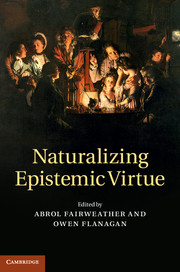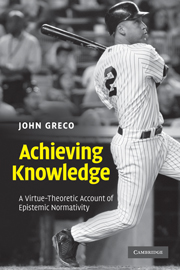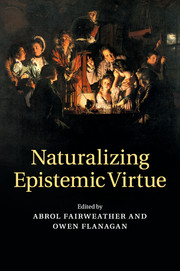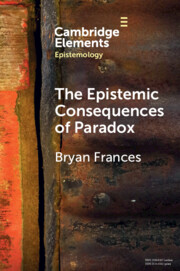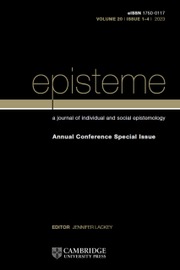Knowledge, Dexterity, and Attention
Contemporary cognitive science clearly tells us that attention is modulated for speech and action. While these forms of goal-directed attention are very well researched in psychology, they have not been sufficiently studied by epistemologists. In this book, Abrol Fairweather and Carlos Montemayor develop and defend a theory of epistemic achievements that requires the manifestation of cognitive agency. They examine empirical work on the psychology of attention and assertion, and use it to ground a normative theory of epistemic achievements and virtues. The resulting study is the first sustained, naturalized virtue epistemology, and will be of interest to readers in epistemology, cognitive science, and beyond.
- Readers in both psychology and philosophy will benefit from an original and interdisciplinary explanation of the psychology of epistemic motivation
- Offers a historical assessment of previous attempts at providing a motivation-based approach to epistemic achievements within a reliabilist framework, contributing to key debates on the relation between ability, motivation, and credit
- Presents new ideas on the psychology of curiosity and its relation to linguistic motivations, particularly assertion
Reviews & endorsements
'This is an excellent book … The reader gets a balanced, critical account of how virtue epistemology stands today. The argumentation is judicious and insightful. I learned a great deal from it, and so, I think, will anybody who reads it.' Notre Dame Philosophical Reviews
Product details
January 2019Paperback
9781107461574
204 pages
230 × 150 × 10 mm
0.3kg
Available
Table of Contents
- Introduction: why only agents are knowers
- 1. Epistemic virtue, reliable attention and cognitive constitution
- 2. Meta-epistemology and epistemic agency
- 3. Success semantics and the etiology of success
- 4. Epistemic agency
- 5. Assertion as epistemic motivation
- 6. Curiosity and epistemic achievement
- 7. Collective agency, assertion and information.

